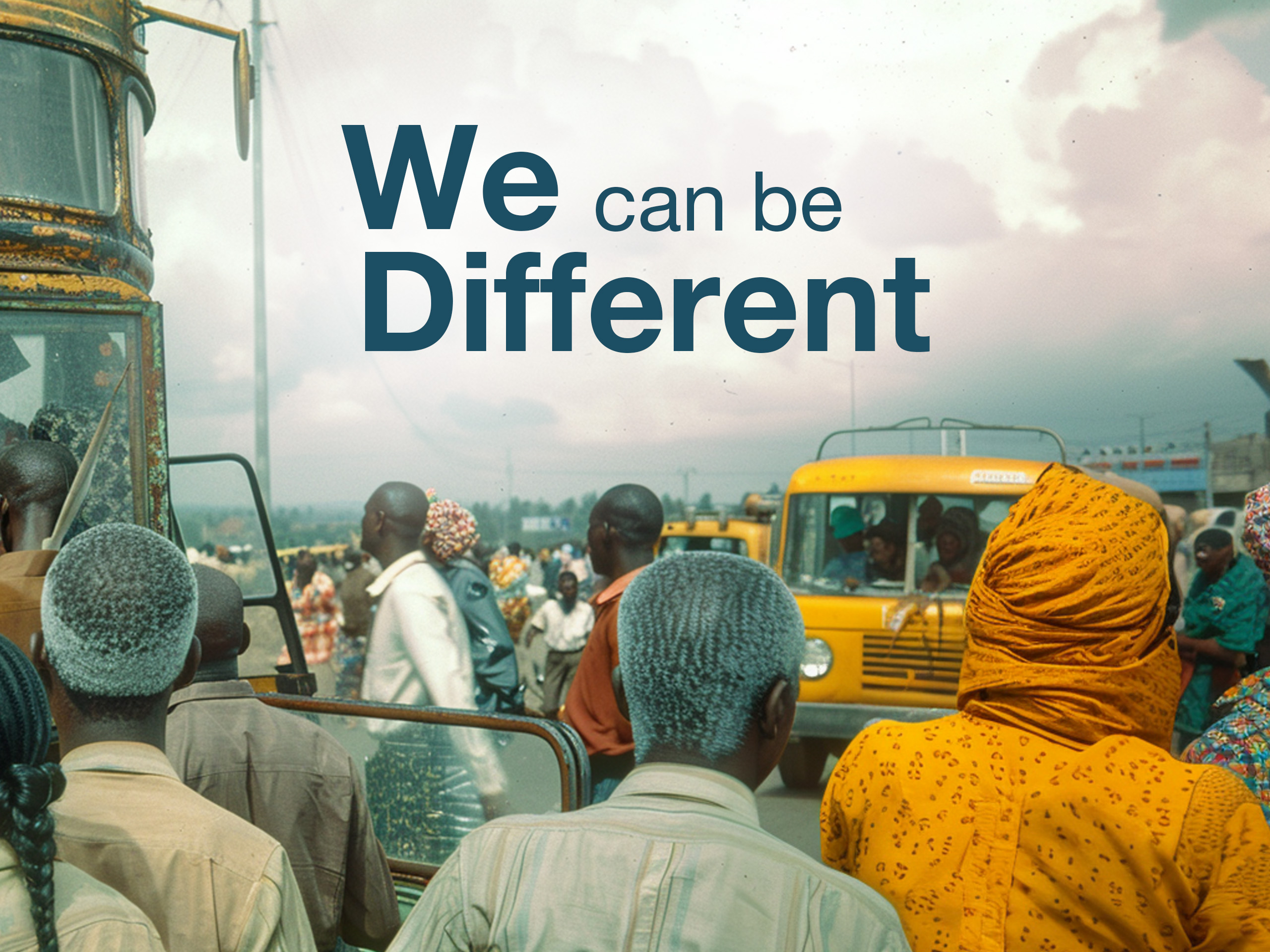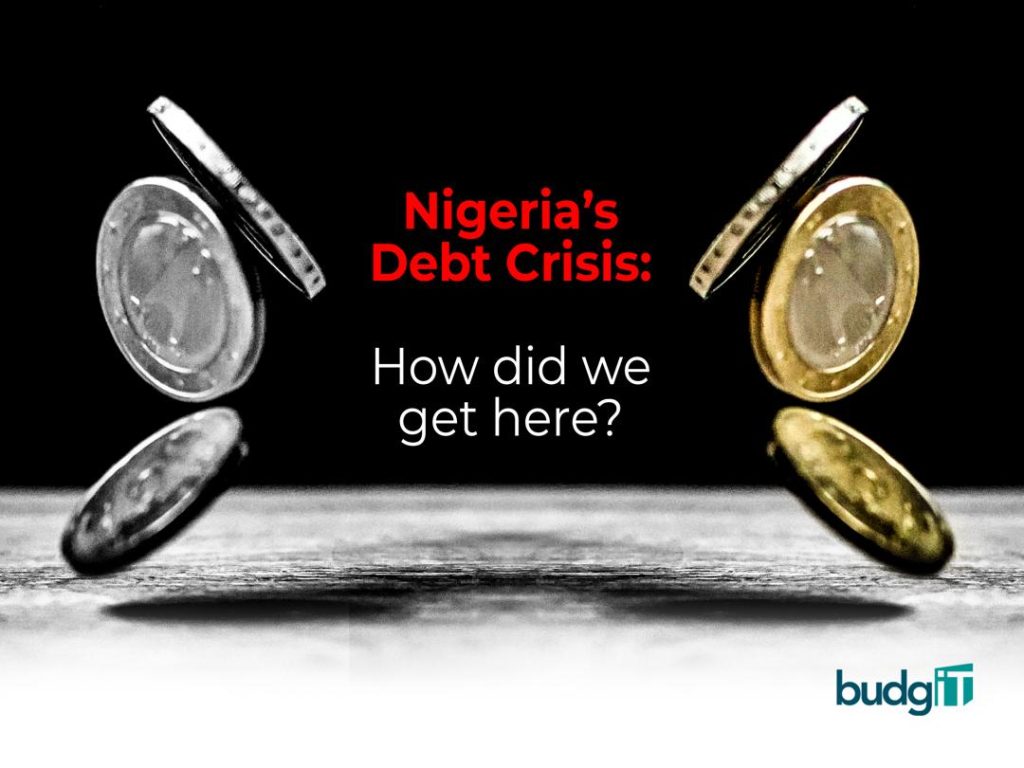We Can Be Different
It seems increasingly difficult to expect anything remarkably different from an ordinary Nigerian. It often seems as if nearly all Nigerians have been negatively impacted by the contagious culture of greed, corruption, and a complete lack of affinity for the greater good of the country. There seems to be so much that is wrong and nothing typifies this more than the seeming incompetence of government (especially at the center) to marshal positive national economic and well-being outcomes for Nigerians.
We are currently facing perhaps one of the worst inflation and cost of living crises in recent history. Daily, Nigerians wake up to the rising costs of goods and services and the ever-changing exchange rate, with the naira worsening against major currencies—dollars (USD) and British Pound. Besides these, there continue to be pockets of street protests here and there against the high cost of living and somewhat directed at the government at the center. There have been calls for the resignation of President Bola Ahmed Tinubu for being clueless and incompetent to manage the economic affairs and guarantee the security of lives and property in the country. Even the Nigeria Labour Congress (NLC) has scheduled February 28 and 29 for nationwide protests against the rising cost of living and by extension the state of the nation.
The unasked question remains, “How are Nigerians surviving these hard times considering that a good percentage of them were already rated as living below the poverty line and are mostly static income earners without any recent adjustments to public workers’ salaries or agreement tona revised national minimum wage rate?” Though in October 2023, the Nigerian Federal Government announced a 35,000 naira wage award to civil servants as some sort of cushioning against the effect of fuel subsidy removal, reports suggest there was no consistency in the payments. It can also be argued that the awards made little impact considering that such gains in disposable income have been wiped away by the price increases.[1]
We have been inundated with stories of Nigerians rallying around to save and support other Nigerians badly hit by the current situation and have had to cry out or even faint on the streets from not being able to feed themselves for days. It is hard to tell how Nigerians are getting by, but it is fair to say there has been a lot of belt-tightening and adjustments to keep body and soul together. But for how much longer? There is an expected extreme and causal relationship between hard economic times and an upsurge in criminality. There have been reports of a surge in deadly criminal activities such as abductions and kidnappings for ransom, robberies, and petty crimes here and there as desperate and criminally-minded Nigerians heap more pains and sorrows on fellow citizens.
The survivability discourse appeared to have been put on hold for the weeks the AFCON 2023 lasted as the Super Eagles stumbled through the group stages, dazzled in the knockout stages, and zoomed into the final against the host, Ivory Coast, raising hopes that Nigeria was about to win its fourth Nations Cup and perhaps trigger wild jubilations across the country. Sadly, the team lost the final in a manner that was not reflective of their gallant efforts against Cameroon, Angola, and South Africa in the run-up to the final.
But then, there are great lessons to be drawn from the team’s surge to the finals that can be used to mirror the current Nigerian economic situation. Leadership—competent leadership—remains a major factor in leading any team (country) to realizing national goals. The national team’s Manager/Coach in the run-up to the AFCON 2023, especially with the friendlies and the two World Cup qualifiers, had not displayed a full grasp of how best to manage his selection of players (drawn from the top leagues in the world, especially Europe). There were therefore doubts about the team’s performance in the tournament. This is akin to the country’s leadership, especially at the national level. Did President Bola Ahmed Tinubu converge the best hands to serve in his cabinet, most importantly those to manage key aspects of the economy? Did the president think through the strategy and tactics as a soccer coach would? So, for instance, was the “subsidy is gone” inaugural speech statement borne from deep thinking and long-term projections?
The obvious has been laid bare with the silent return to the subsidy regime as reported in the media.[2] Similarly, the tactic around the country’s exchange rate management appears to be backfiring and is the main trigger for the continuing rise in the prices of goods and services. Nigeria sadly remains import-dependent and with the current foreign exchange regime, there is no end in sight to the surging prices. Thus, when a coach cannot select the best players or lacks clarity on the play pattern that will facilitate effective cohesion and results for the team, irrespective of the pedigree of the players, such a team is most unlikely to reach its true potential.
Nigeria’s national team, for instance, struggled through the group stages of AFCON 2023, getting a face-saving 1-1 draw against Equatorial Guinea, securing a morale-boosting 1-0 victory against the host, Cote d’Ivoire, and a 1-0-win, courtesy of an own goal, against Guinea Bissau. Besides Côte d’Ivoire, the two Guineas shouldn’t, if the ratings of the sides were anything to go by, trouble Nigeria. But that wasn’t the case. The pedigree of President Bola Ahmed Tinubu as the builder of Lagos and the magic man of Lagos heralded him through the campaign period, he was projected as one who would hit the ground running and turn things around swiftly.
There certainly appear to have been some false starts and missteps, and the battle to regain the hyped reputation in the face of harsh criticism (often rightly so) on economic policies is a huge one he must fight to win. That also appeared to have been the trigger for the Super Eagles at AFCON, for against more formidable opponents as the indomitable Lions of Cameroon, in the round of 16, the team played with gusto and seemed highly motivated leading to the 2-0 triumph. This gusto characterized their play against Angola and South Africa in the subsequent matches.
But then, the cracks in the team’s strategy, especially in sitting back to absorb the attacks of the opponents and always looking out for the counterattack, were cited by many concerned Nigerian soccer enthusiasts. This was something many hoped would be corrected before the final match. Likewise, the management of a country through policies and the enforcement of the rule of law can be undermined by poorly thought-out policies and the implementation of the same as well as the flagrant disregard of the rule of law by elected and appointed public officials.
We have seen some cracks in the attitude and behavior of elected and appointed public officials as well as with government institutions. Largely, around the questions of integrity in the management of public resources, we have read reports of the scandal over which the Minister of Humanitarian Affairs, Betta Edu, was suspended, including the approval of the payment of N585.2 million into a civil servant’s private account.[3]
There is no clarity yet on the investigation’s direction and what outcomes will follow it. But what is clear is that the President must pressure members of his cabinet to act with greater regard for the established rule of law, be more transparent and accountable in managing their respective Ministries, Departments, and Agencies (MDAs), and quench public perceptions that corruption is the order of the day with appointed officials. The cracks and deficits in capacity in any cabinet or soccer team must be duly addressed and dealt with to ensure that the cabinet or team delivers on its desired goals in the face of huge national expectations.
The fears that the Nigeria national team would be overwhelmed by the teeming fans of the Ivorian team, which somewhat rose from the dead to reach the final, were not unfounded and did play out in the final game which Nigeria lost by a 2-1 margin. As a country, we must be proactive toward opportunities to reach our goals, whether as national soccer teams, or any other sport or political leadership at all levels. When we fail to reach those goals, we must have an honest audit of what happened and appropriate solutions for another time.
The Nigerian team still has the World Cup and AFCON 2025 (scheduled for July/August 2025 in Morocco) qualifying rounds to prepare for. The country must also appraise the technical capacity of the coaching crew, just as President Tinubu must be fearless and assess the performances of his cabinet to date. we can do far better as a country, we can be different and realize our true potential if we choose to reinforce purposeful leadership.
Joseph Amenaghawon is a development economist, Head of Civic Hive, and Growth Strategist at BudgiT



